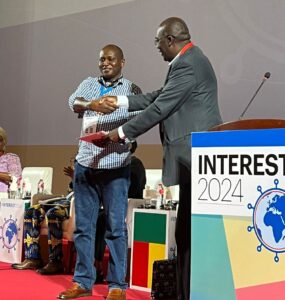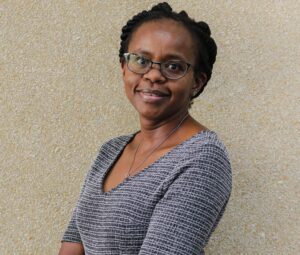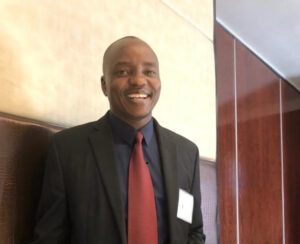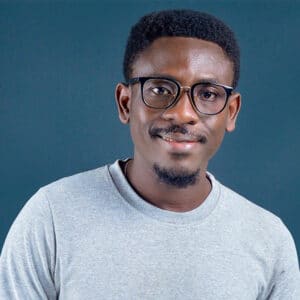December 02, 2021, 3.30 pm to 5.30 pm EAT, 2.30 pm to 4.30 pm CAT, 1.30 pm to 3.30 pm WAT
Doctoral students have a strong desire to complete their degrees in good time, but they may face obstacles along the way that could impede their progress. Women and men may encounter different challenges in their PhD journey arising from societal expectations and traditional gender roles.
The difficulties they may have to face in scheduling their research and academic programs are related to critical events, such as childbearing and other caregiving responsibilities, as well as the continuing strain between academic and home obligations. As a consequence, research has shown that women take six months longer to complete their PhDs and have fewer papers accepted for publication during their doctoral studies, compared to their male counterparts. Hence, factors such as family, employment, marital status, and economic concerns, have a great impact in shaping women’s education and research.
To address these imbalances, a gender-responsive PhD program is required, one that takes into account women’s gender roles, which are likely to influence their journey and completion of their doctoral degrees.
In this round table conversation, the panelists will discuss what it takes for women to pursue their PhD in Africa, what opportunities they have today as compared to the past, the challenges they have to bear, and the benefits they stand to gain through their PhD journey.
Meet the Panelists
Macellina Ijadunola
Macellina Ijadunola is a Public Health Physician and Associate Professor of Public Health at Obafemi Awolowo University (O.A.U), Ile-Ife. Her career in Public Health research and teaching spans twelve years. She is a cohort six CARTA graduate upon completion of her Ph.D in 2019. Her Ph.D research and training have led to her collaborative efforts with fellows and mentors in the CARTA network within and outside O.A.U in Reproductive Health and Social Epidemiology research. Her current funded researches are in social epidemiological and implementation science research on mental health, behavioral and reproductive health challenges of women who experience intimate partner violence during the COVID-19 pandemic. She also engages in research among vulnerable populations such as adolescents living in Skipped Generation Households in Africa, specifically Nigeria.
John Alonge
Dr. Ayodele John Alonge is a Lecturer at the Department of Library, Archival and Information Studies, University of Ibadan, Nigeria. Dr Alonge is a Certified Librarian of Nigeria (CLN). He is the Webmaster & Social media coordinator for the Association for Information Science and Technology (ASIS&T) Africa Chapter. He served as Emerging Technology Librarian at the University of Ibadan Library for more than 7 years. He worked as a Librarian and Archivist at KPMG Nigeria for more than 4 years. He also served as Regional Adviser -Sub-Saharan Africa Region for Emerald Group Publishing, the United Kingdom for 4 years. He served as the Coordinator of the Nigeria Library Association (NLA) Digital Communication Crew with the responsibility of managing the website and social media platforms of the association (2017-2021).
During the COVID lockdown, Dr. Alonge led social research titled the chronicles of Researcher in COVID-19 lockdown in Africa; he is also trained over 1000 university students as a Social Responsibly through the Checheskyboard platform on Telegram.
Rose Opiyo
Dr. Rose Opiyo is a Public Health Nutrition specialist. She holds a PhD in Human Nutrition (University of Nairobi), MSc in Applied Human Nutrition (University of Nairobi), and a Bachelor of Education in Home Economics (Kenyatta University). Her research areas of interest are maternal and child nutrition, school child nutrition, Nutrition and HIV/AIDS, nutrition-non-communicable disease link, omega-3 fatty acids, and food security. Currently, Dr. Opiyo teaches Public Health Nutrition for Community Health Course (HCH 402: Community Health) and Master of Public Health (HCH 612: Nutrition) as well as coordinating the teaching of HIV/AIDS common course (CCS 010: HIV/AIDS) for undergraduates at the University of Nairobi.
Stephen Wandera
Stephen Wandera is a Population Scientist by training. He is a Lecturer and Head of the Department of Population Studies, Makerere University, Kampala, Uganda. He holds an Msc. in Population and Reproductive Health and a Bsc. in Population Studies. His research focuses on inequalities in access to and utilization of health services by older people. He also investigates sexual and gender-based violence in Uganda among adults and children. His PhD thesis investigated the “Disparities in Access to Healthcare among Older Persons in Uganda’ using mixed methods research paradigm.




